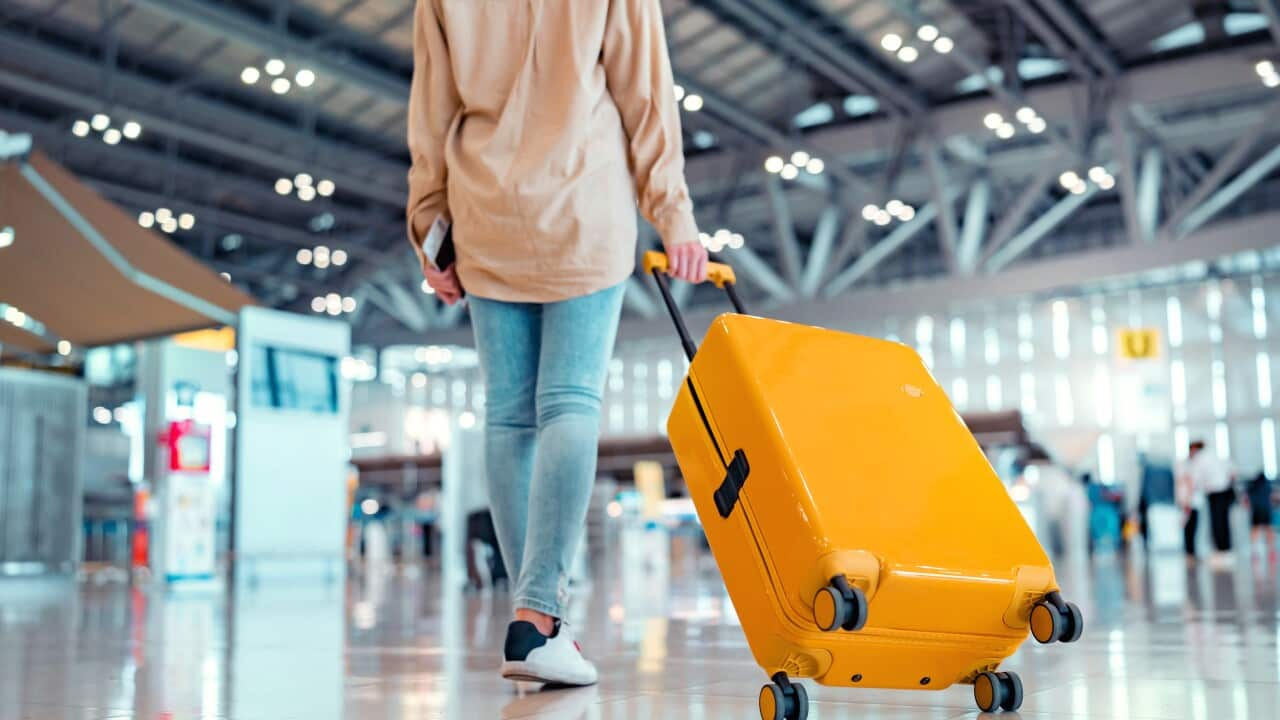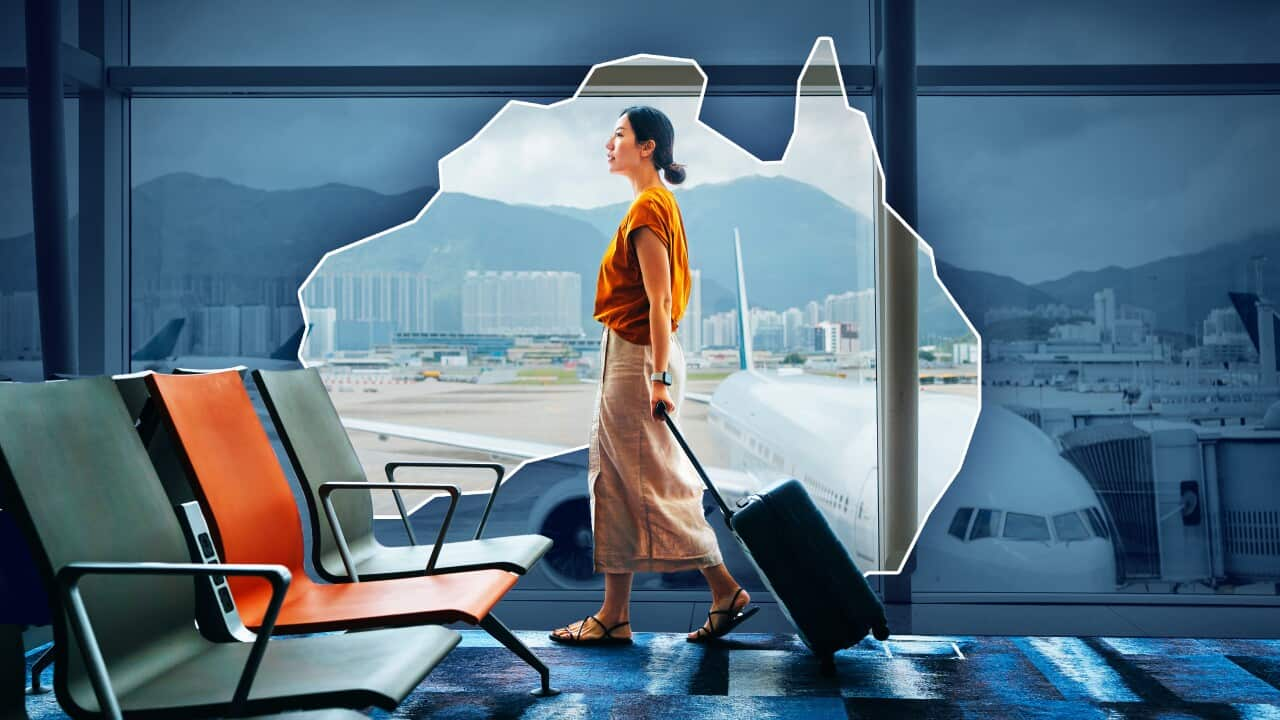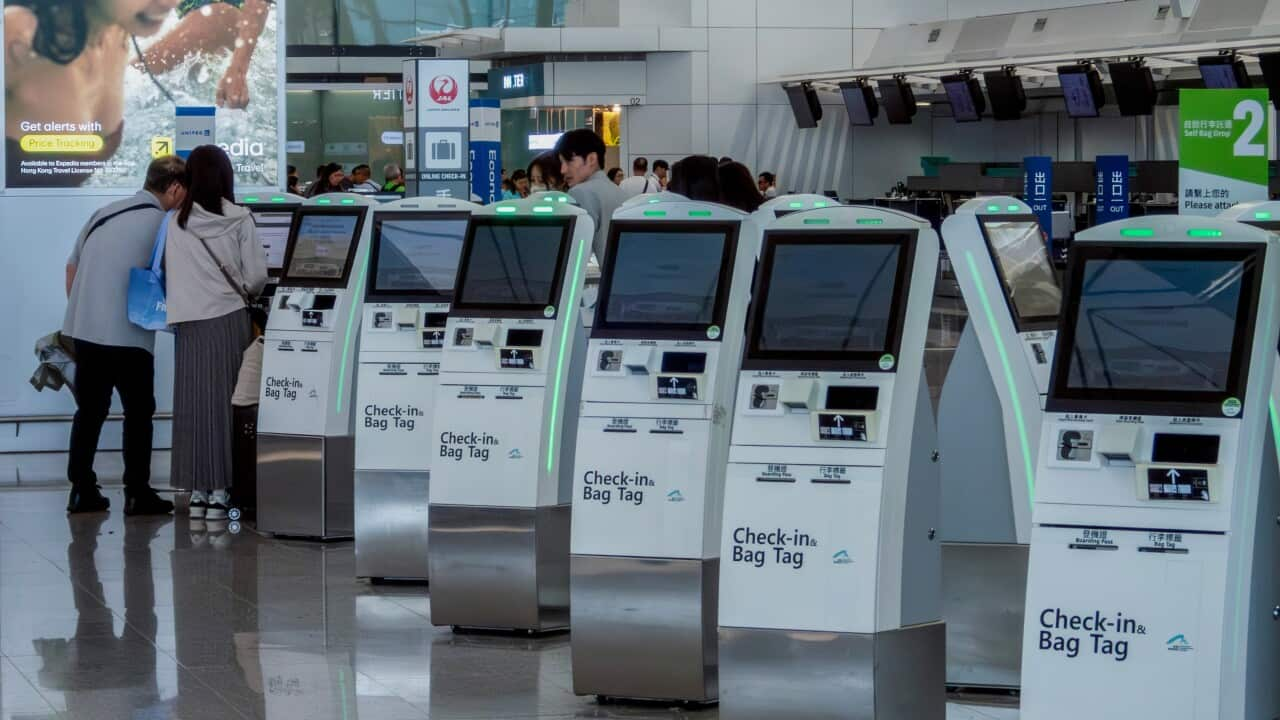Dreaming of sipping a spritz in Italy this year? You might want to check the exchange rate first.
The Aussie dollar has suffered amid sparked by .
Flights, accommodation, meals, and insurance — many things can become more expensive when your dollar doesn't go as far.
Could Trump's tariffs disrupt your travel plans?
Trump has since walked back his rollout of , having announced a and largely imported from China — where exporters .
But on Wednesday, before these developments, the Aussie dollar fell to 59.15 US cents — its weakest point in about five years.
It has since recovered slightly, buying about 62 US cents. The Aussie dollar is also weaker against the Euro, buying about 55 euro cents — down from 58 euro cents last month.
Despite the dip, Dr Luke Hartigan, lecturer at the University of Sydney and a former Reserve Bank economist, warned against assuming price hikes across the board just yet.
"Thinking back to when the dollar went below 50 [US] cents back in the 2000s, it didn't lead to immediate, massive price rises. Many businesses absorbed the costs or hedged against them," he said.
Companies that rely on overseas imports often protect themselves through currency hedging, locking in exchange rates in advance. This means some travel-related costs may not spike immediately, but if the dollar stays low for months, you could feel the pinch more at the petrol pump or when booking international flights.
"Fuel and air travel — those will be reflected quite soon, I imagine," Hartigan said.
"What is likely to be reflected immediately is consumers deciding to travel locally. So you may end up going to Queensland or just to Cairns instead of going overseas, with the exception of New Zealand. That's the one country our dollar always never falls against."
Are people still planning to travel? If yes, then where?
Sydney resident Laura said she's had to change her travel plans to Europe in July due to the poor exchange rate.
"I was planning to go Greece and Italy this year, but I ended up changing it to Thailand. A lot of my friends are having their Euro summer in Southeast Asia now," she said.
"I have family in London that I was going to stay with, but even then, I lose half of my money as soon as I land because of how bad the Aussie dollar is compared to the British Pound.
"I'd rather have a holiday where I know I can get way more for my money, which takes me a lot longer to save up due to the cost of living here in Australia."
'Travel is a price elastic good'
A study released by the Tourism and Transport Forum (TTF) that surveyed Australians about their travel plans from 1 December 2024 to 28 February 2025 showed that despite the rising cost of living continuing to strain Australians' wallets, a significant portion of the nation still planned to prioritise travel.
NSW and Queensland emerged as the most popular destinations for those travelling domestically, while Aussies headed overseas were most likely to visit New Zealand, Japan or Europe, according to the survey.
TTF CEO Margy Osmond said despite the age-old advice to book in early, Australians have indicated their openness for a last-minute travel plan.
"Whether it's due to the busy end-of-year schedule or looking out for a final-hour deal, most Australians have said that they’d book a holiday less than a month in advance. Almost a third would even wait until a few days out from departure to get organised," she said in December.
However, Professor Sara Dolnicar from The University of Queensland who specialises in travel and tourism said travel is a "very price elastic good".
"Given the current cost of living crisis and now the low Australian dollar, when it comes to tourism, it reacts strongly to price changes or income changes," she said.
Dolnicar said consumer behaviour has shifted post-pandemic, with Australians now showing a stronger preference for international holiday destinations over domestic ones.
"The pandemic taught us that we actually can have a nice holiday close to home. I was hoping that realisation would linger, especially for sustainability purposes. But in Australia, that hasn't been particularly the case," she said.
"I think Australians still have this very strong desire to travel internationally. We have destinations like Europe and the United States that are somehow idealised in what it means to us to have a specific kind of holiday.
"So for Australians, it's not about giving up on the dream ... but instead to delay it for when it becomes more affordable."
The global impact of economic uncertainty
But beyond Australia, the global economic outlook is not exactly positive.
"The US for sure [is at risk of recession]," Hartigan said.
"Businesses are likely to shelve investment plans, and consumers are tightening their purse strings. You amplify that across everything — cars, coffee, chocolate, even game consoles being delayed."
He said trade-heavy, low-income countries like Vietnam and Bangladesh are also feeling the sting of global tariff wars and slower consumer demand — all of which eventually ripple through supply chains and travel costs.
Travel tips for a weak dollar economy
If you're still keen to travel internationally, a few savvy moves can help ease the blow:
- Book early. Lock in flights and accommodation while rates are stable
- Use hedged travel cards or lock in exchange rates early
- Travel during off-peak seasons and look for deals on flights and stays
- Watch your destination's currency
- Consider package deals, these can bundle costs and reduce exposure to fluctuating exchange rates



